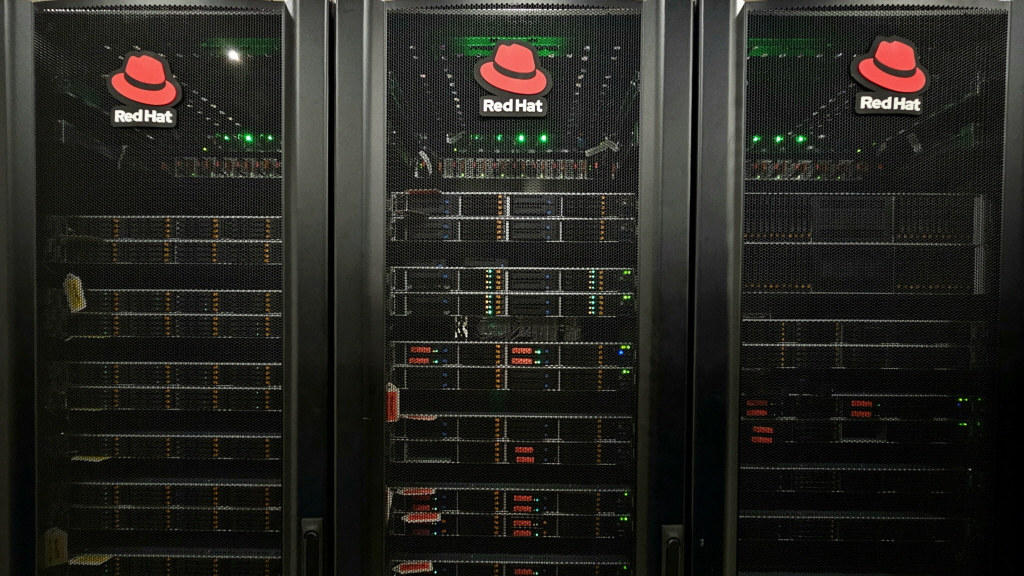삼성전자, ‘레드햇 인증 CXL 인프라’ 구축
기사입력 2024.06.25 08:33

제품부터 소프트웨어까지 서버 전 구성 요소 자체 검증 가능
삼성전자가 ‘레드햇 인증 CXL 인프라’를 구축하며, 제품부터 소프트웨어까지 서버 전 구성 요소에 대한 자체 검증이 가능해 신속한 제품 개발 및 고객 맞춤 솔루션 제공이 기대된다.
삼성전자는 업계 최초로 글로벌 오픈소스 솔루션 선도기업 레드햇(Red Hat)이 인증한 CXL(Compute Express Link) 인프라를 구축했다고 25일 밝혔다.
CXL(Compute Express Link)은 고성능 서버 시스템에서 CPU와 함께 사용되는 △가속기 △D램 △저장장치 등을 보다 효율적으로 활용하기 위한 차세대 인터페이스다.
삼성전자는 이를 통해 CXL 관련 제품부터 소프트웨어까지 서버 전 구성 요소를 화성캠퍼스에 위치한 삼성 메모리 리서치 센터(SMRC)에서 검증할 수 있게 됐다.
SMRC(Samsung Memory Research Center)는 삼성전자의 메모리 제품을 탑재한 고객사가 자사 서버의 하드웨어와 소프트웨어의 최적 조합을 분석하고 성능을 평가할 수 있는 리서치 센터다.
삼성전자는 이달 업계 최초로 CMM-D 제품 레드햇 인증에 성공했으며, 이는 이번 인프라 확보로 이뤄낸 첫 성과이다.
CXL 제품 인증을 내부에서 자체 완료한 후 레드햇 등록 절차를 즉시 진행할 수 있어 신속한 제품 개발이 가능해졌으며, 고객들과 개발단계부터 제품 최적화를 진행해 맞춤 솔루션을 제공할 수 있게 됐다.
인증 제품을 사용하는 고객들은 레드햇으로부터 유지·보수 서비스를 받을 수 있어 신뢰성 높은 시스템을 더욱 편리하게 구축 가능하다.
이외에도 고객들은 △하드웨어 안정성 보장 △리눅스 호환성 보증 △전문적인 지원 등을 제공받을 수 있다.
삼성전자와 레드햇은 하드웨어에 이어 소프트웨어 기술까지 협력하며 CXL 생태계를 선도하고 있다.
삼성전자는 지난 5월 미국 덴버에서 진행된 ‘레드햇 서밋 2024’에서 기업용 리눅스 OS인 ‘레드햇 엔터프라이즈 리눅스 9.3 (Red Hat Enterprise Linux 9.3)’ 기반 서버에 CMM-D를 탑재해 딥러닝 기반 추천 모델(DLRM) 성능을 향상시키는 시연을 진행했다.
해당 시연에는 SMDK의 메모리 인터리빙 기술로 차세대 솔루션인 CXL 메모리 동작을 최적화해 메모리 용량과 성능을 모두 높였다.
이를 바탕으로 빠른 데이터 처리와 AI 학습·추론 가속화가 가능해 고객은 추가 시설 투자 없이 더욱 뛰어난 성능의 AI 모델을 구현할 수 있다.
삼성전자와 레드햇은 CXL 메모리 생태계 확장과 새로운 기술 표준 제시를 목표로 파트너십을 강화해 다양한 사용자 시스템에 적합한 고객 솔루션을 제공할 계획이다.
삼성전자 메모리사업부 DRAM 솔루션팀 송택상 상무는 “이번 레드햇과의 협업으로 고객들에게 더욱 신뢰성 높은 CXL 메모리 제품을 제공할 수 있게 되어 매우 기쁘다”며 “하드웨어와 소프트웨어를 아우르는 양사 간의 지속적인 협업을 통해 혁신적인 메모리 솔루션 개발과 CXL 생태계 발전에 앞장설 것”이라고 전했다.
레드햇 코리아 김경상 대표는 “삼성전자와 레드햇의 협력은 CMM-D와 같은 차세대 메모리 솔루션 확장에 오픈소스 기술이 중요함을 보여준다”며 “양사는 CXL 솔루션의 시장 확대를 위해 지속 협력할 것”이라 밝혔다.
향후 삼성전자는 이번 인프라 확보를 바탕으로 AI 시대에 걸맞은 다양한 제품을 선보이며 기술 리더십을 공고히 할 계획이다.
많이 본 뉴스
[열린보도원칙] 당 매체는 독자와 취재원 등 뉴스이용자의 권리 보장을 위해 반론이나 정정보도, 추후보도를 요청할 수 있는 창구를 열어두고 있음을 알려드립니다.
고충처리인 장은성 070-4699-5321 , news@e4ds.com






